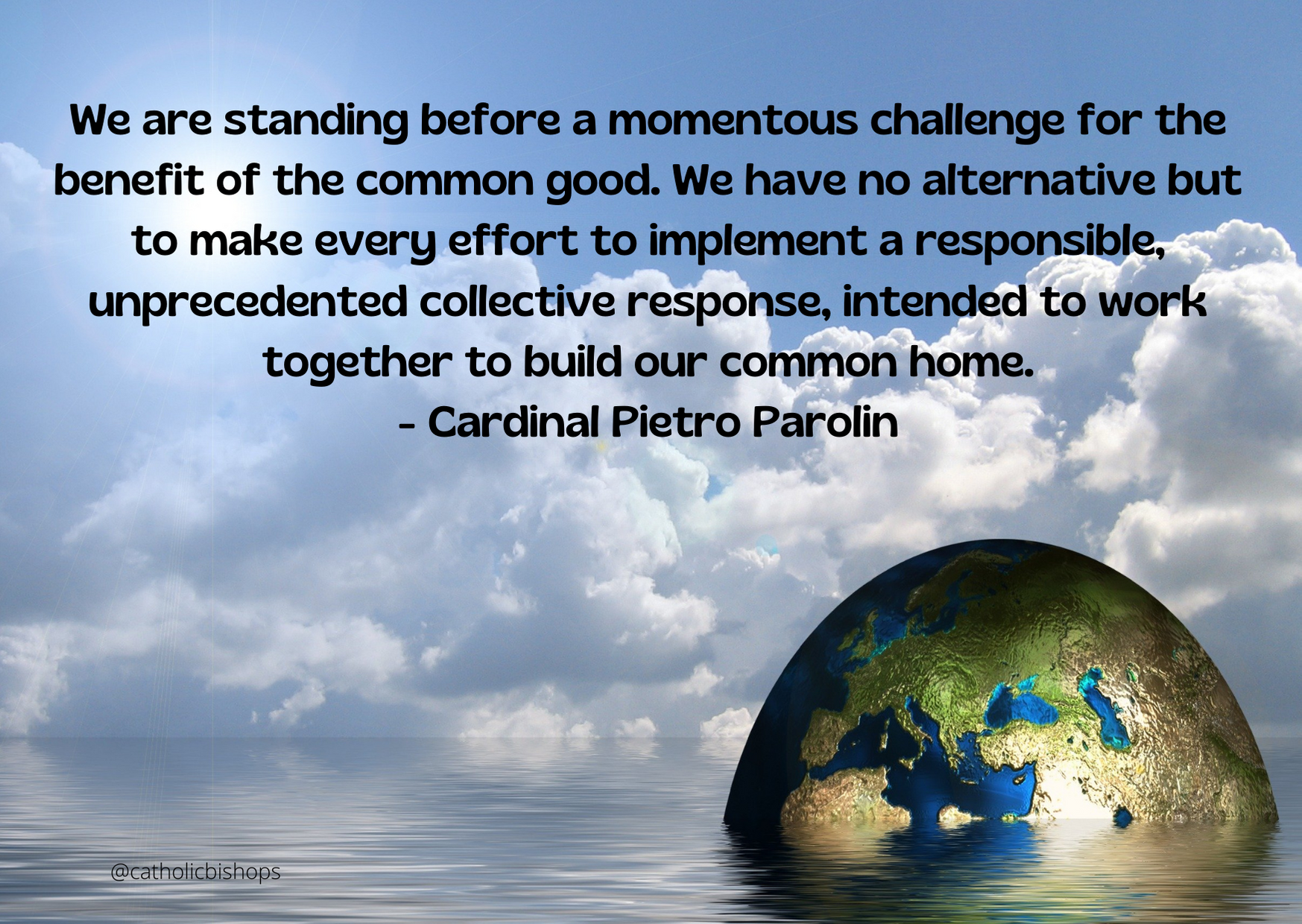Cardinal Parolin opens his video message by extending Pope Francis’ “cordial greeting” and “closeness, support and encouragment in these days of intense effort for a fruitful outcome to this Climate Adaptation Summit.”
Then, quoting from Pope Francis’ encyclical Laudato sí, on care for our common home, Cardinal Parolin continues by stressing that we all know that “climate change is a global problem with grave implications: environmental, social, economic, political, and for the distribution of goods. It represents one of the principal challenges facing humanity in our day.”
Cardinal Parolin explains that the scientific data we have “clearly shows the need for swift action”, taking into consideration the contexts of “ethics, equity and social justice”.
In this regard, Cardinal Parolin explains that the transition to a reduction of greenhouse gas emissions is not only a problem of the domain of technology, “but also a question of consumption patterns, education and lifestyles”. At the same time, although the reduction of greenhouse gas emissions and mitigation activities are necessary, they are “not sufficient,” he stresses.
“This is a moral and humanitarian imperative,” states Cardinal Parolin. He continues, saying the “greatest negative consequences of climate change often affect the most vulnerable”; and he notes that “while the poor are the least responsible for global warming, they are the most likely to be affected, since they have the least adaptive capacity and often live in geographical areas which are particularly at risk.”
We are required to come up with a global and shared long-term strategy based on precise commitments, “capable of defining and promoting a new model of development and built on the synergistic bond between the fight against climate change and the struggle against poverty, he says.
Cardinal Parolin goes on to note that the Covid-19 pandemic has demonstrated that “nothing can be accomplished by working alone.” Once again quoting Pope Francis, this time at the United Nations General Assembly last September, Cardinal Parolin says, “We are faced with a choice between two possible paths. One path leads to the consolidation of multilateralism as the expression of a renewed sense of global co-responsibility, a solidarity grounded in justice and the attainment of peace and unity within the human family, which is God’s plan for our world. The other path emphasizes self-sufficiency, nationalism, protectionism, individualism and isolation which would certainly be detrimental to the whole community, causing self-inflicted wounds on everyone. It must not prevail.”
Concluding his video message, Cardinal Parolin notes that what is needed is “a stronger international cooperation committed to a low-carbon sustainable development,” as well as investment in strengthening technologies and resilience, “and transferring them under fair conditions, particularly to the most vulnerable countries.”
“May we make the response to climate change an opportunity for improving overall living conditions, health, transport, energy and security, and for creating new job opportunities,” says Cardinal Parolin. He stresses that this is a difficult and complex task, but that we have the “freedom, intelligence and capacity to lead and direct technology” so that it is put at the service of a more human, social and integral progress.
“We are standing before a momentous challenge for the benefit of the common good. We have no alternative but to make every effort to implement a responsible, unprecedented collective response, intended to work together to build our common home.”
ENDS
Source: Vatican News article.


